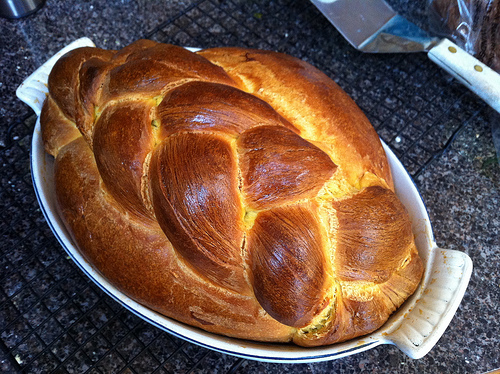
The Old Testament lection for this week from Isaiah 50 is one of the “Suffering Servant Songs,” (SSS) which, though there is nothing explicitly messianic in many of them, early Christianity nonetheless read as prophecies of Jesus. As George E. Nicklesburg demonstrated in a path-breaking article more than three decades ago in the Harvard Theological Review, the Suffering Servant wasV an important literary motif to which Israel returned repeatedly in an effort to make sense of its status as subordinate state in the larger geopolitical world in which was situated. Characters such as Joseph, Esther, and Daniel represented models of proper behavior and deportment on the part of Jews living in an alien moral universe fraught with everything from the seductive suggestions of compromise to the existential threats of extermination by the foreign powers which dominated them for so many centuries, first as the suzerain of the Israelites and then later, after 587, as their conquerors. The SSS are thus the poetic and prophetic complement to the narrative accounts of the righteous sufferers….
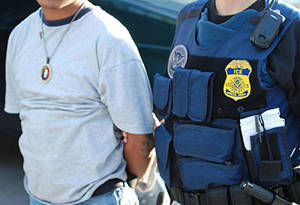
The record number of deportations under the Obama administration and the shift in enforcement strategy from worksite raids to isolated, yet more numerous, detentions is a symptom of a crisis faced by the modern state in an increasingly globalized economy. The state seeks to hide the coercion used to sustain the social imaginary now threatened by a changing world.

My post, “Two American Dreams and One Economic Reality,” looked at the debate about American values initiated by President Obama’s now famous quote: “You didn’t build that.” I argued that the radical individualism embodied by the Republican outrage against this phrase is consistent with neither Christian faith nor economic reality. I am proud of that essay. I think it provided a clear sense of why my Christian faith leads me to support the Democratic Party. But, some of my friends and colleagues pushed back against it pretty hard. They were concerned that my rhetoric of grace and gratitude, my vision of God’s economy, did not quite fit their experience of President Obama or the Democratic Party over the past four years. The disillusionment of these faithful Christians and good Americans is understandable, but my fear is that the fact that Barack Obama is not the Messiah may threaten his very limited but very real accomplishments in both international and domestic affairs….
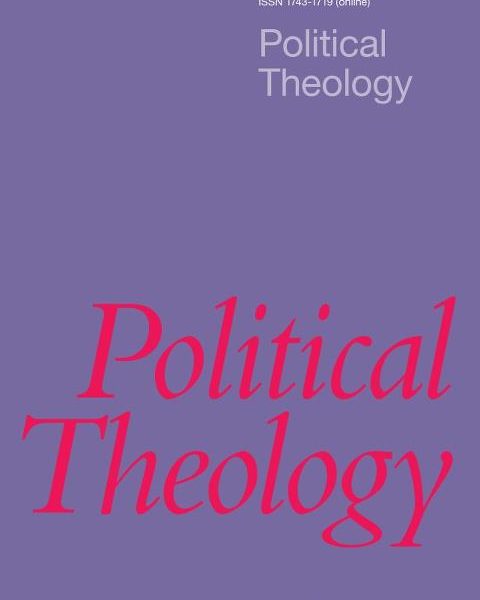
Inter-religious understanding and debate, once neglected within the academic study of theology and religion, has acquired a political significance that is unlikely to diminish in the foreseeable future, with the result that it will require substantial and sustained scholarly engagement and investment for the long-term.
The focus of the current issue of Political Theology (13.4) is religious pluralism, and inter-religious dialogue and cooperation. Overlooked and marginalised for too long in the academic study of theology and religion – where the ‘big beasts’ of the discourse have tended to be scholars pre-occupied with intra-religious concerns, and where expertise in religions in the plural has been frequently regarded as stretching yourself too thinly – such studies are slowly assuming an academic importance commensurate with the geopolitical significance of religion…..
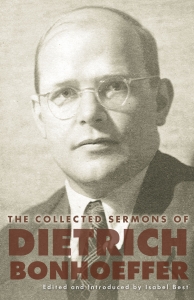
The sermon below is taken from “The Collected Sermons of Dietrich Bonhoeffer,” edited and introduced by Isabel Best. // The overcoming of fear—that is what we are proclaiming here. The Bible, the gospel, Christ, the church, the faith—all are one great battle cry against fear in the lives of human beings. Fear is, somehow or other, the archenemy itself. It crouches in people’s hearts. It hollows out their insides, until their resistance and strength are spent and they suddenly break down. Fear secretly gnaws and eats away at all the ties that bind a person to God and to others, and when in a time of need that person reaches for those ties and clings to them, they break and the individual sinks back into himself or herself, helpless and despairing, while hell rejoices….
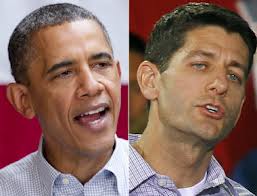
“The individual today is often suffocated between two poles represented by the State and the marketplace” (Pope John Paul II, Centesimus Annus #49). The 2012 U.S. presidential campaign has, to a degree unseen for several years, brought to the fore the fundamental issues of political life: the relationship of the individual to society, the role of the state and of the economy in society, etc. The selection of Paul Ryan as Republican Mitt Romney’s running mate, an intellectually capable and ideologically driven conservative, ensures that will continue to be the case….
A critical issue left unaddressed in Bass’s response to Douthat is the state of power relations within mainline Protestant denominations. In her well-intentioned attempt to counteract the corrosive and controlling ‘narrative of decline’ that plagues mainline Protestant communities, she inadvertently diverts attention away from the reality that the majority of their leadership positions and financial resources are firmly in the control of the Baby Boomer generation….

It’s moments such as these that are only possible on the web… After hearing some amount of Facebook-based moral outrage from friends both progressive and conservative, centered somehow around the fast food chain, Chick-fil-A, I decided I better pull my head out of the sand and see what the kerfuffle was all about. The first story I read was an LA Times editorial on Chick-fil-A and free speech. I’ll return to the content of that story in a moment, but as I reached the bottom of the page, my eyes uncharacteristically caught sight of the advertisement. It’s offer? Free Chick-fil-A!
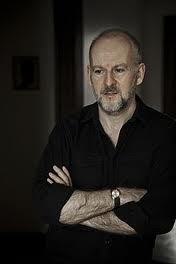
In this interview Simon Critchley discusses his new book, “The Faith of the Faithless: Experiments in Political Theology,” with Dave True of Political Theology. Along the way Critchley touches on an array of topics: his respect for religion, the experimental nature of free thought, what love has to do with a politics of resistance, the genius of the Occupy Movement, nonviolence and its limits, the wisdom of Antonio Gramsci, and the illusions of Marxism. Earlier responses to the book can be accessed….
